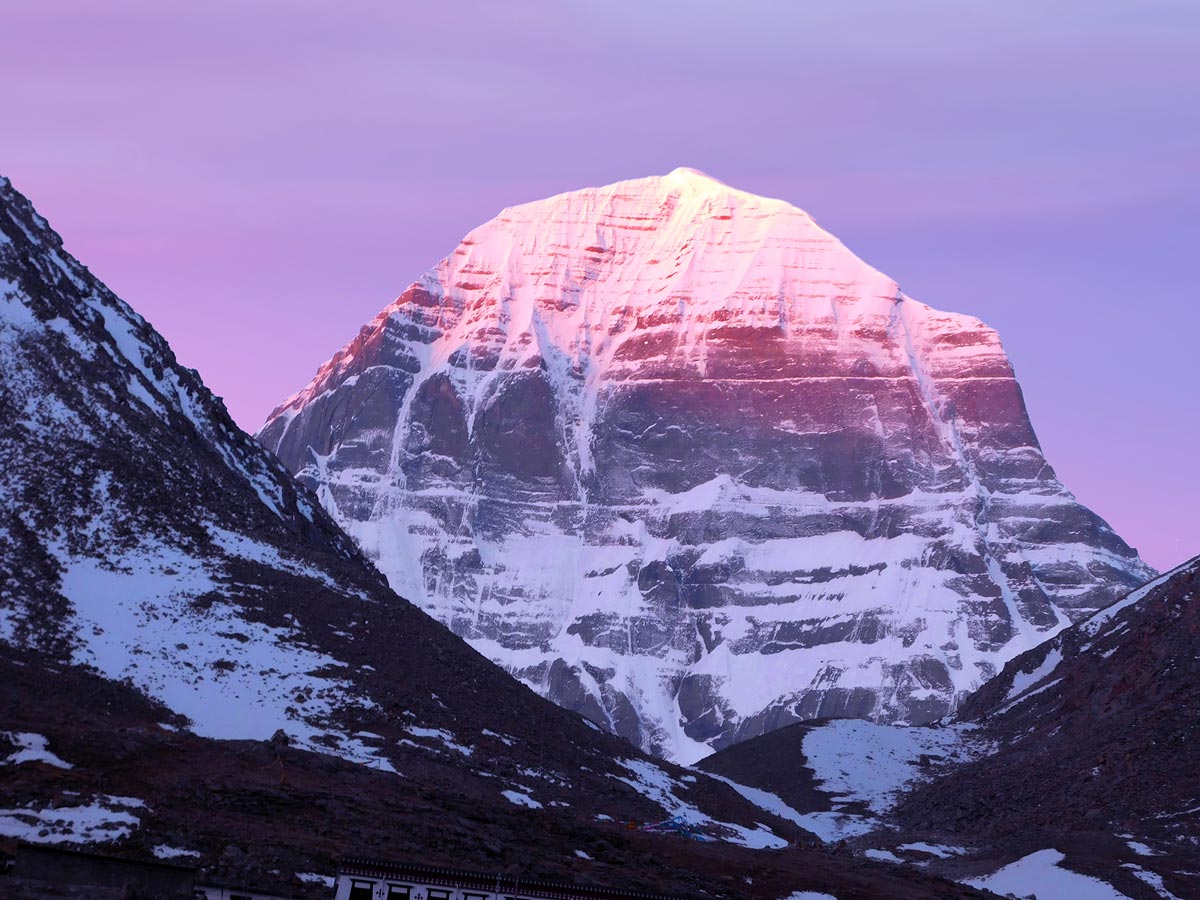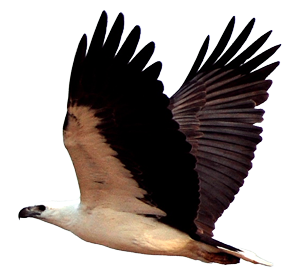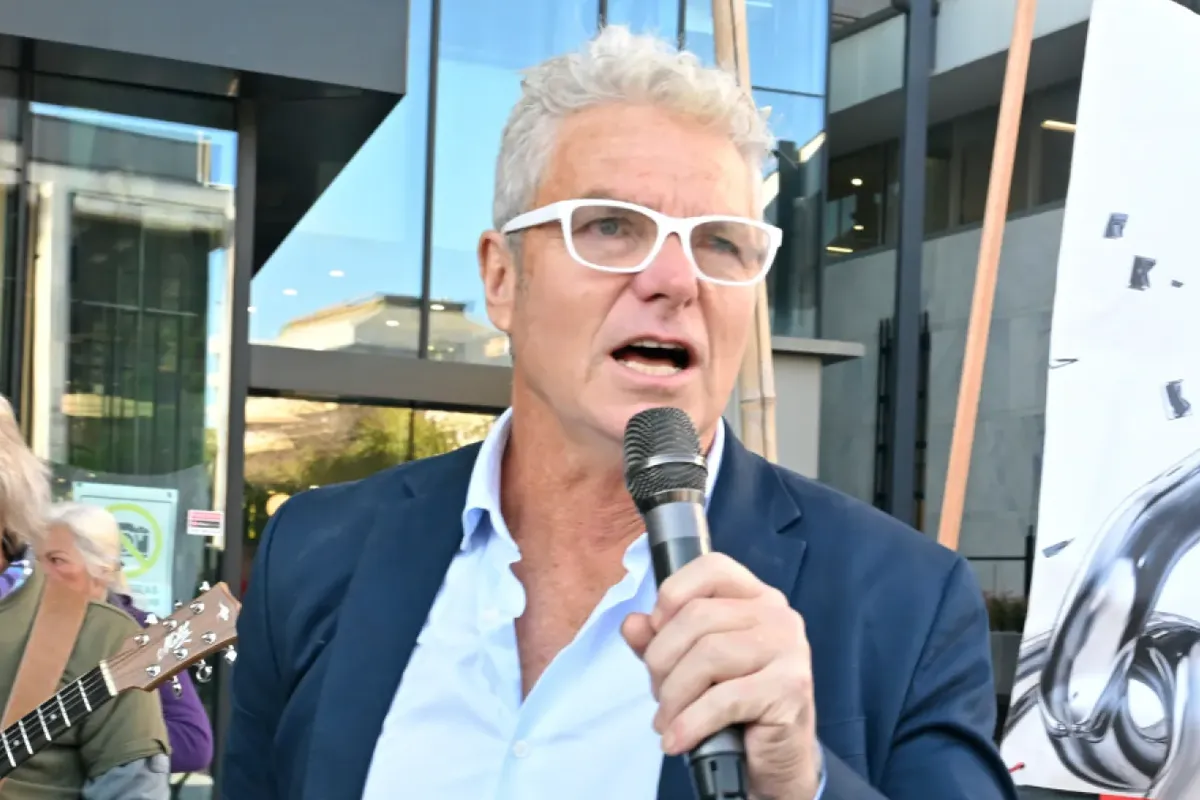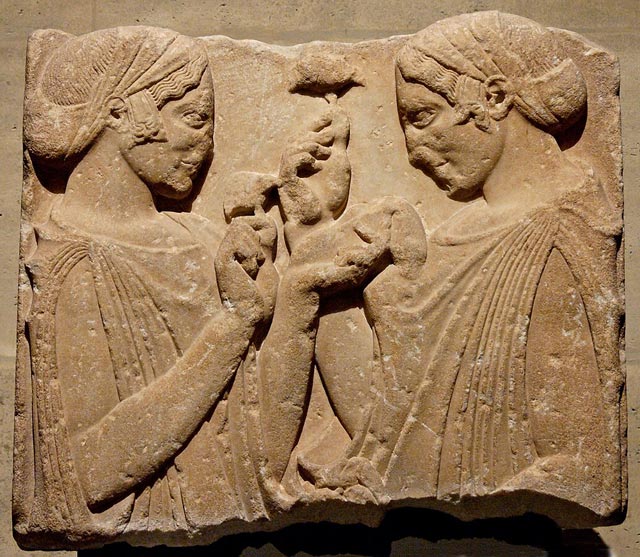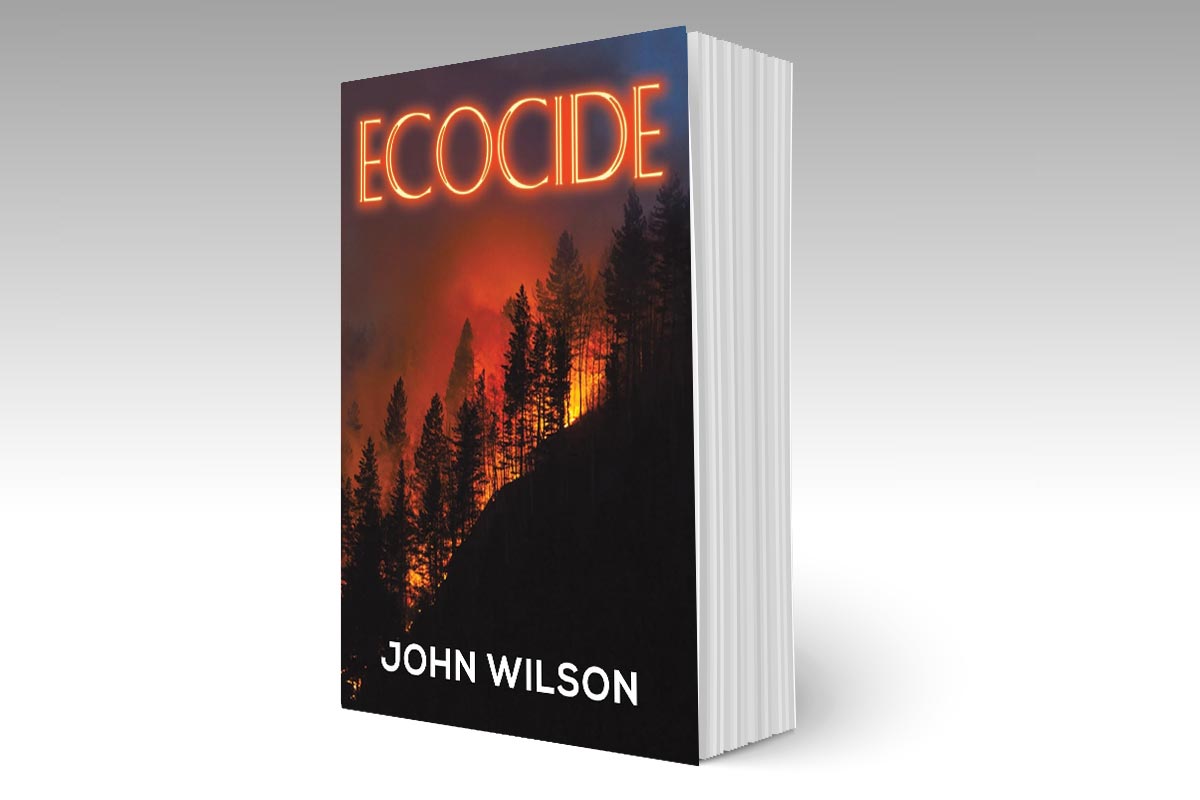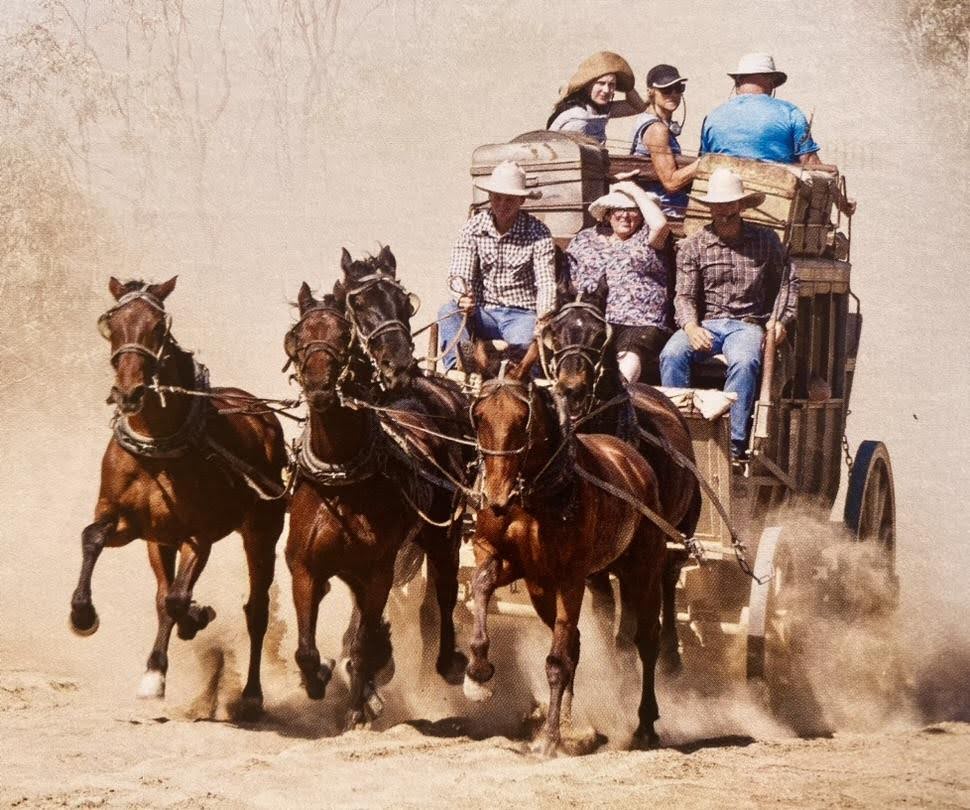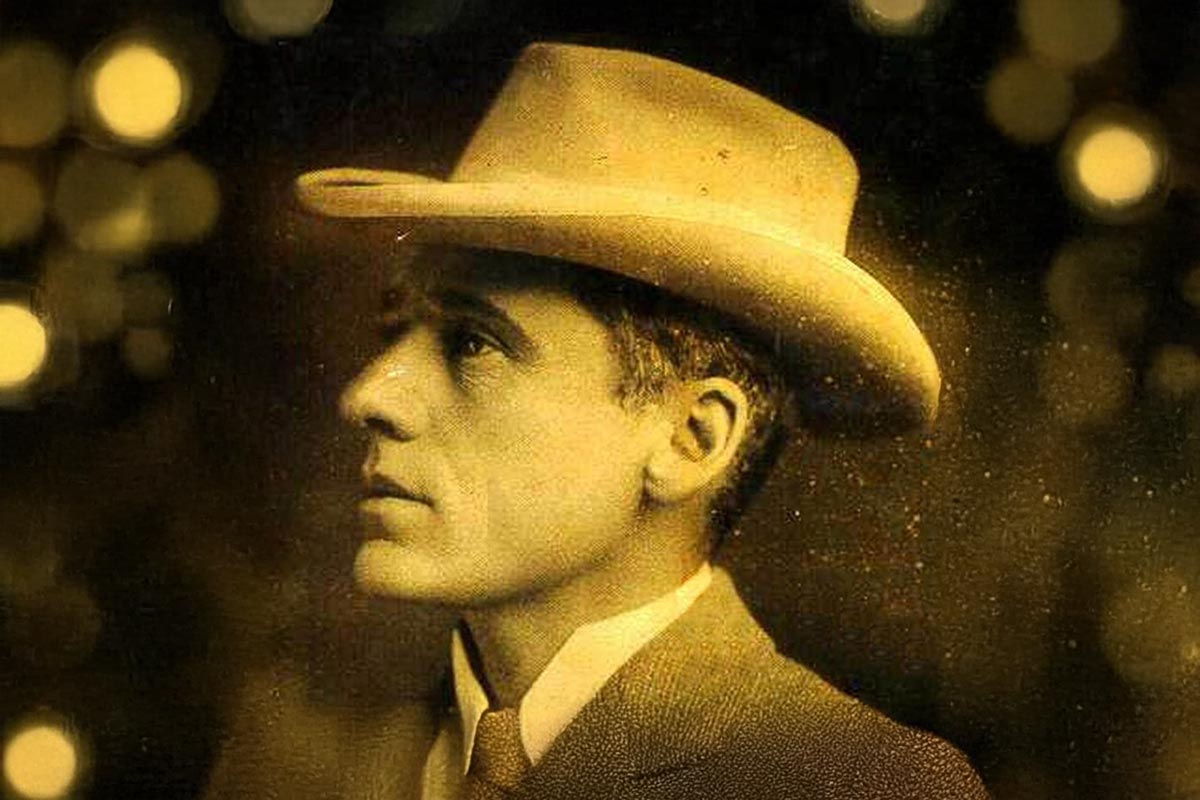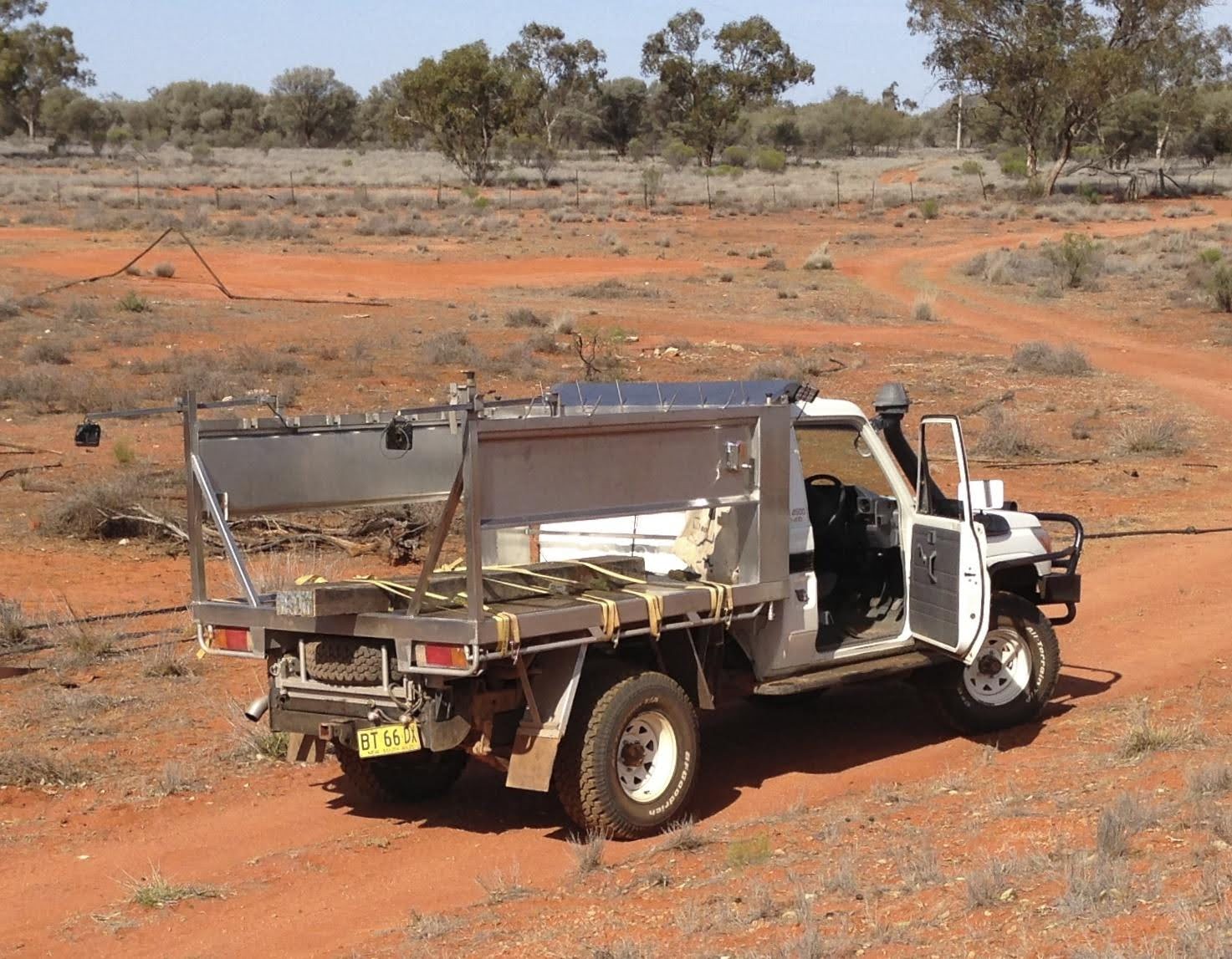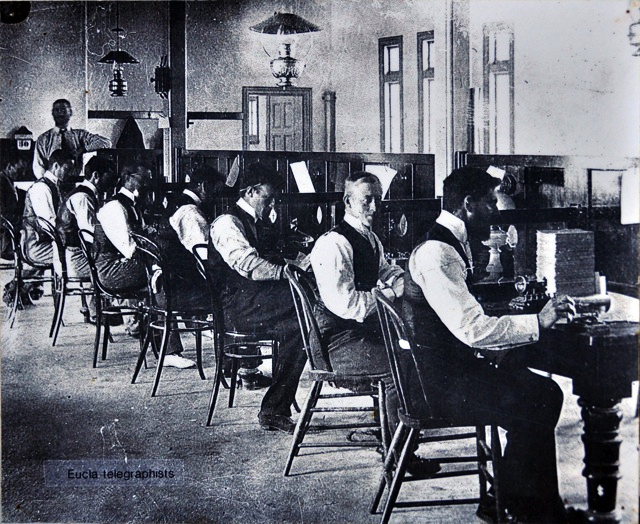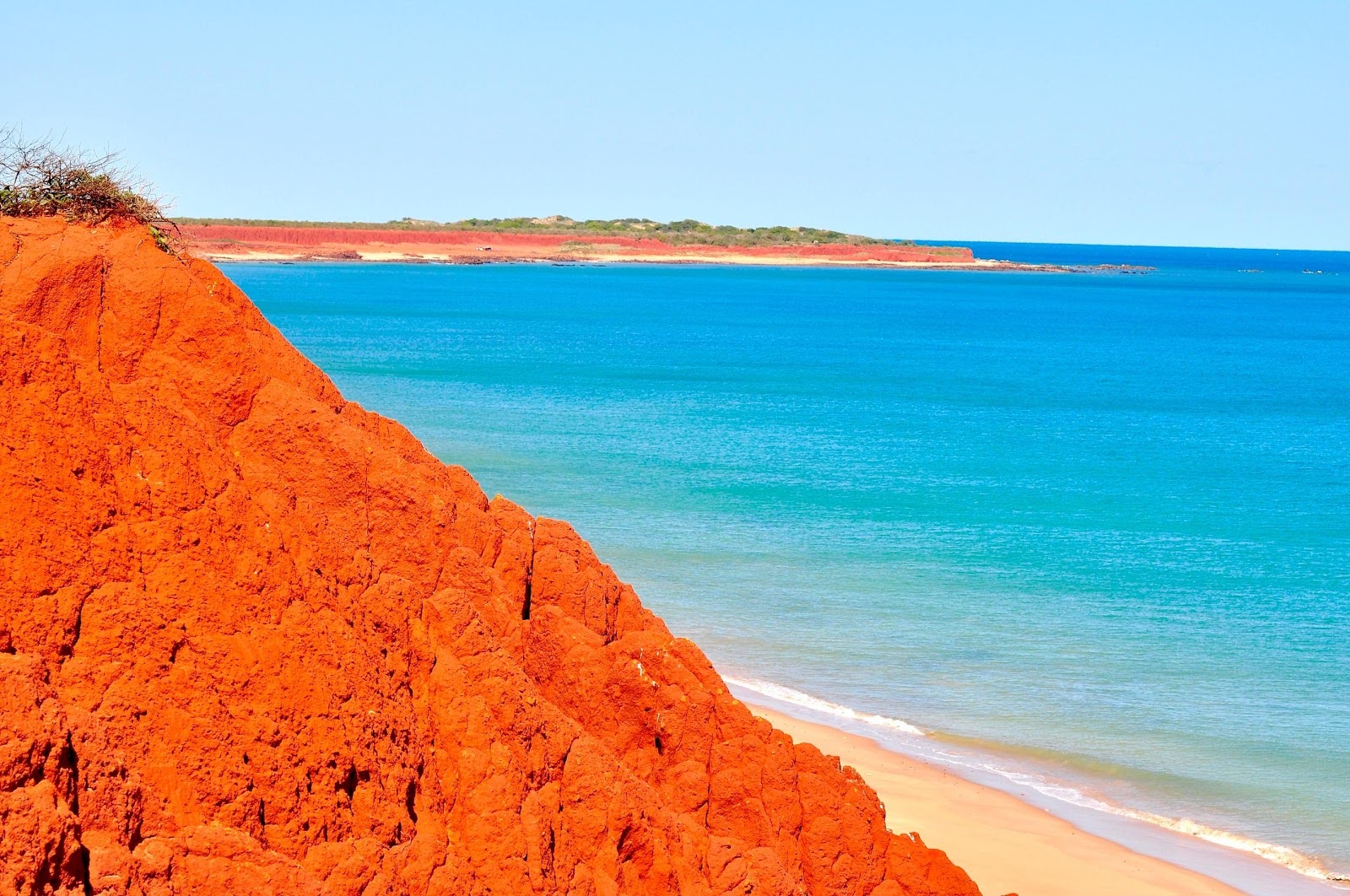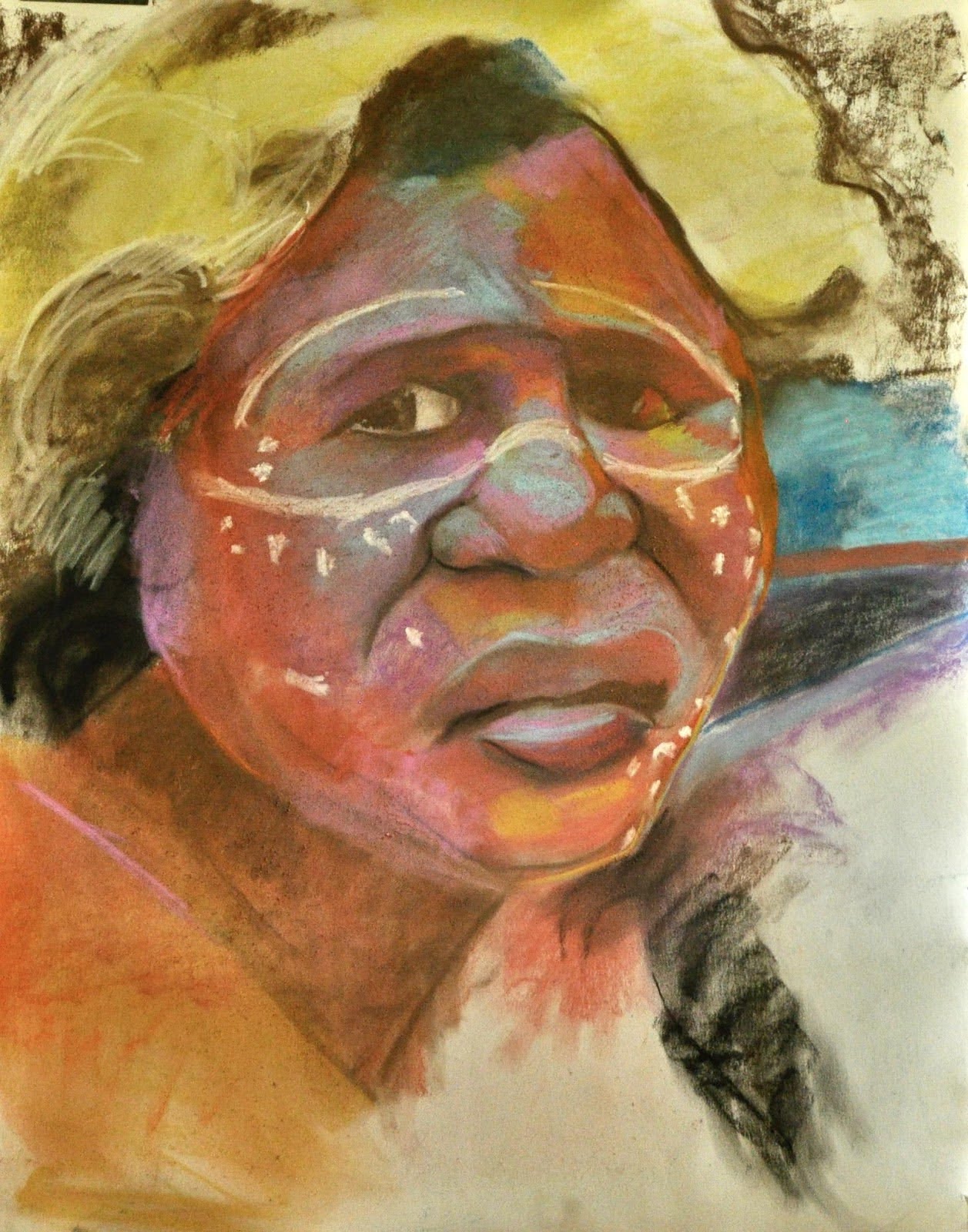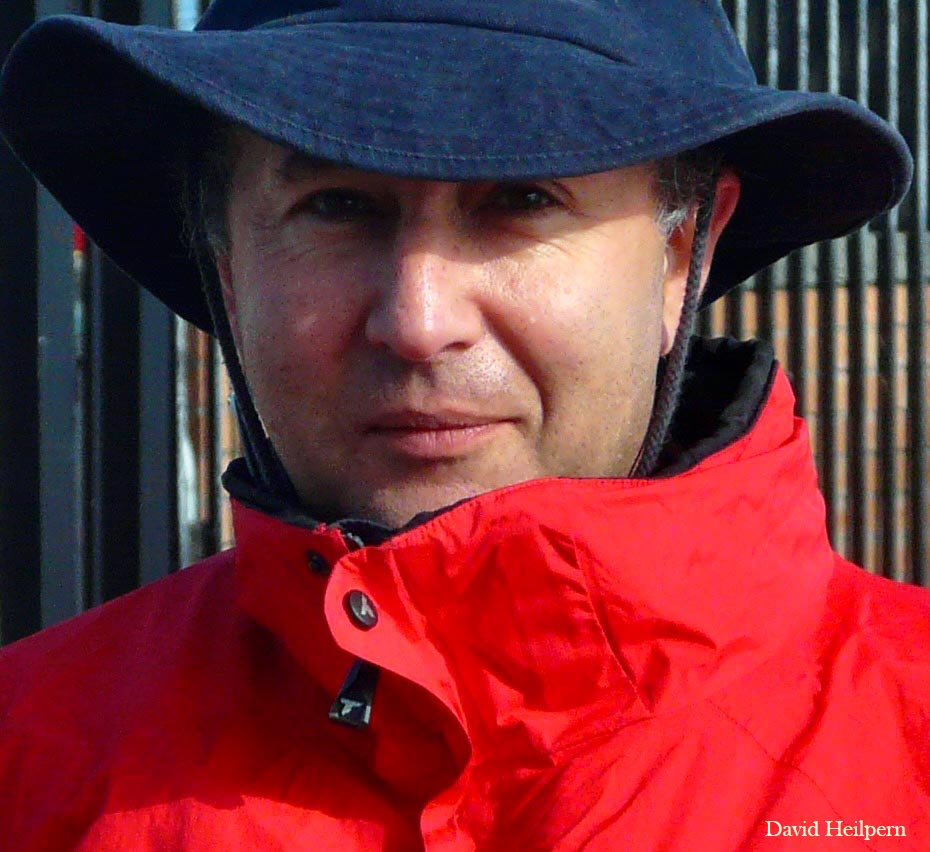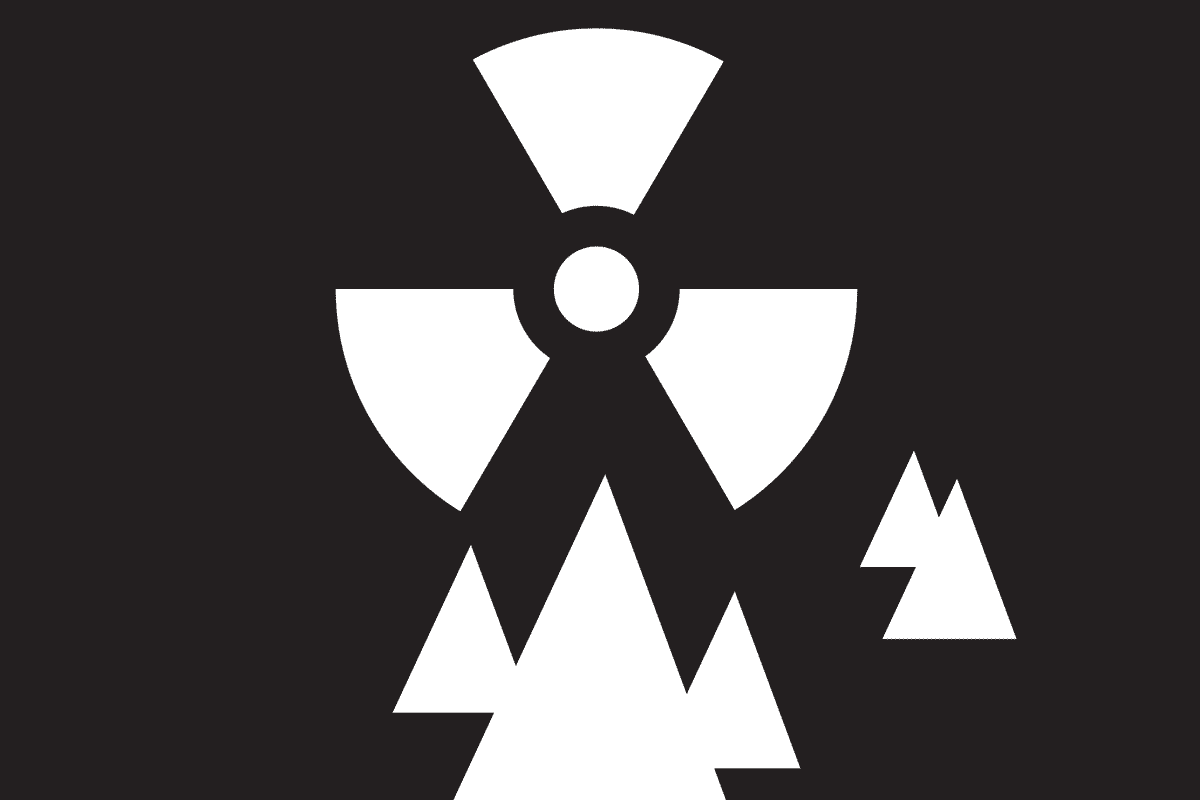Returning to the plains I find my friends staring hungrily at the peak, a great heart thrusting from the earth, evoking ours. Crowned by four big rivers, its coronary arteries murmur to our own, transfusing new life from the earth.
Cold pale evening comes. Dark snow clouds are “stepping round in skirts of storm”. An angry phantom throws dirt into khaki skies. Gravel tears at prayer flags and our shuddering tents. Night closes. In the dawn we will leave, continuing north.
At ever-receding distances, Kailas remains enthralling. At last its summit dips into desert mirage. Pangs of grief arise. Our next truck hammers on across stony terrain. Bodies surrender to brutal shaking. At army checkpoints we hide, waiting through long silences.
Our rig fails often. With a bar the driver forces gears to work, but the cab is so cramped I offer to await another lift while my pals go on. A landslide however blocks its way. I’m stranded for six days meditating alone, telling myself “it’s the inner journey that counts”.
At last a truck approaches manned by three ruffians. We agree on a fare to Kashgar, on the Old Silk Road to Samarkand, a thousand miles north of Kailas. Driving day and night we pause for food or to warm ourselves by fires in the dark while the driver sleeps.
Rocking through boulder-strewn riverbeds and over icy passes, the ruffians demand my money. “Money in Kashgar”, I gesture confidently though outnumbered, but Kashgar is no longer their objective. Awkward silence is heavy in the cab.
Beyond the ranges we enter Xingiang Province, once Turkistan. At a village, green with willows in new leaf, my truckers are greeted by friends, who lead a sheep through a café, cut its throat on the front step, hang it in a willow by the door, and butcher it for lunch.
Bandits with rifles walk the dusty street. Knives flash. I’m in a hornet’s nest. My driver demands cash. Balancing justice with prudence I hand over what seems fair. He wants more. His mate drops a steel bar at our feet. I take the hint, my bag, and my leave.
